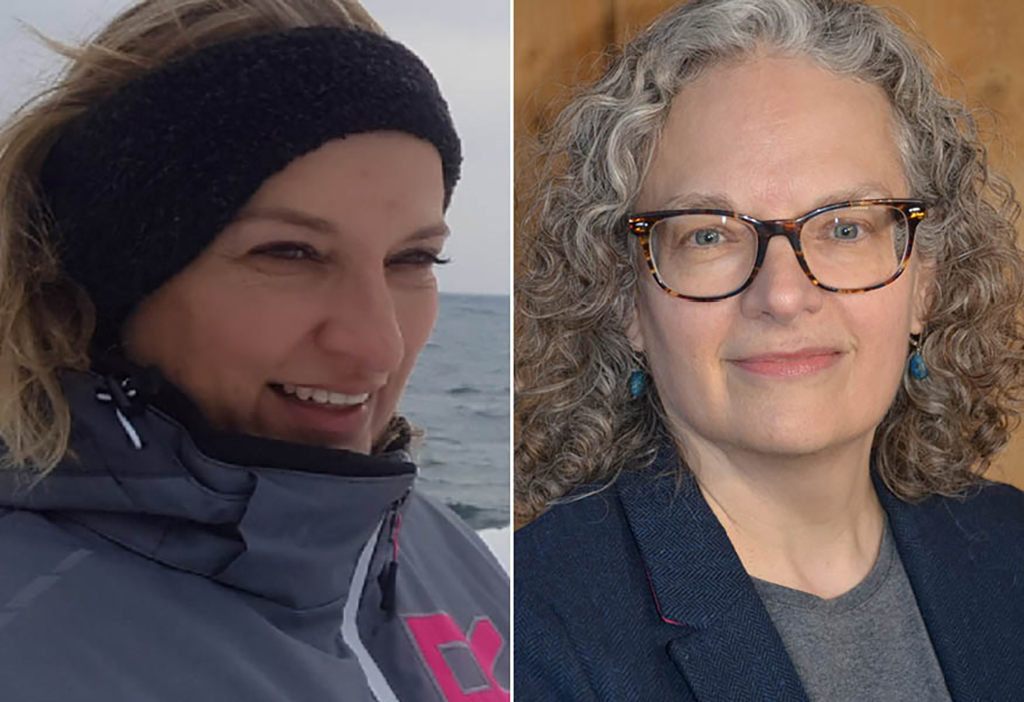NOSM researchers study Indigenous vaccine confidence in Northern Ontario
Posted on January 18, 2022
Northern Ontario School of Medicine (NOSM) researchers are partnering with Indigenous communities and organizations to strengthen vaccine confidence among Indigenous youth.
Drs. Marion Maar, Associate Professor, Medical Anthropology and Maurianne Reade, Associate Professor, Clinical Sciences Division and a rural generalist family physician on Manitoulin, are principal research investigators for the project, Co-Creating Vaccine Confidence: An Anishinabe Theatre-based Approach to Strengthen Indigenous Youth and Young Adult Vaccination Support.
Funded for $200,000 over two years by the Canadian Institutes for Health Research (CIHR), the team will combine Indigenous arts-based research methods with public health approaches to learn what matters most to young people regarding COVID-19 vaccinations. The project aims to build upon the collaboration between First Nations communities, the Manitoulin health-care system, and Sudbury and District Public Health, who achieved high rates of COVID-19 vaccination uptake.
“Like other regions, First Nations youth and young adults were vaccinated at lower rates than older people in Northern Ontario,” says Dr. Reade, who is also a member of the Ontario Immunization Advisory Committee and involved in strategic planning for vaccine distribution on Manitoulin Island. “Intersectoral research collaborations create opportunities for new innovations that are needed to inform the most appropriate approach to society’s most complex challenges.”
Together with Mariette Sutherland, a First Nations health leader, the team will support knowledge translation by communicating their findings with Indigenous communities and with the public health sector across the country.
“The team will use surveys and theatre-based engagement sessions to better understand the lived experience of the pandemic from the perspective of young Indigenous peoples,” says Dr. Maar. “We are interested in learning how Indigenous youth receive their health information, and what structural and intergenerational factors they may face. Most importantly, we invite all youth perspectives to highlight the specific needs of urban, rural, First Nations, Métis, gender diverse and 2SLGBTQ+ community members.”
Debajehmujig Storytellers and artistic leads, Bruce Naokwegijig and Joahnna Berti, hold international credentials in Indigenous performing art. They are focusing on the youth engagement part of the project in collaboration with Alison Humphrey from the ImmuneNations project. Together, they will co-create “forum theatre”—a performing art form that leverages speculative fiction and serious games to foster Indigenous youth-led conversations about COVID-19 vaccines.
The project research team will also include Dr. Rohit Vijh, a public health resident from University of British Columbia, and Amanda Fluke and Caleigh Bourdon, both NOSM medical students in the Indigenous Health and Wellness Collaborative Specialization. Communities and organizations interested in being included in this work are welcome to contact Marion Maar at mmaar@nosm.ca for more information.
The Northern Ontario School of Medicine (NOSM) is an award-winning socially accountable medical school renowned for its innovative model of distributed, community-engaged education and research. With a focus on diversity, inclusion, and advocacy for health equity, NOSM relies on the commitment and expertise of the peoples and communities of Northern Ontario to educate health-care professionals to practise in Indigenous, Francophone, rural, remote and underserved communities. NOSM’s graduates, faculty, learners and staff are changemakers who lead health-system transformation in Northern Ontario. The School is a recipient of the Charles Boelen International Social Accountability Award from the Association of Faculties of Medicine of Canada and the prestigious ASPIRE award, which recognize international excellence in social accountability and medical education.
For further information, please contact: communication@nosm.ca

